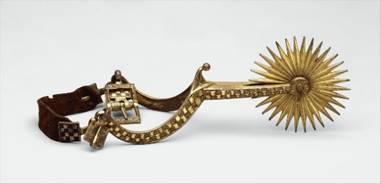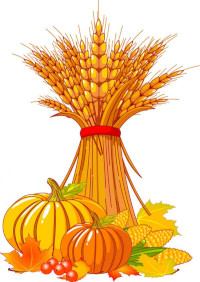|
Rotary International Theme 2024-2025

|
THE ROWEL

Rotary
Club of Durham
|
Rotary
International President:
Stephanie
Urchick
Rotary District 5160 Governor:
Daniel
J. Geraldi
Durham Rotary President: Peggi Whitman
_____________
Editor:
Phil Price
Publisher: Jen
Liu
|
|

|
April 29, 2025
|
Harvest Festival
2025
will
be held on
September
21, 2025

|
|
|
|
|

|
The
Meeting Opening
We met at the Durham
Veteran’s Memorial Hall for our annual Student Award Banquet.
In the absence of
President Peggi, the meeting was called to order by President
Elect Tom Knowles.
Tom then asked Steve
Plume to lead the pledge, which he did.
Jim Patterson
presented the invocation.
Following that Tom
asked Larry Bradley to lead us in a song. He led us in
singing “God Bless America”.
Tom then turned the
meeting over to Larry Bradley for the presentation of
scholarships and awards.
|
| 2025
Calendar for Durham Rotary |
A
p
r
i
l
|
|
|
1
A Club Assembly and Social at Lili's Brazilian Bristro
|
2 |
3 |
4 |
5 |
| 6 |
7 |
8
No Meeting |
9 |
10 |
11 |
12 |
13
|
14 |
15
Meeting
Federal Water Project
(Steve Plume) |
16 |
17 |
18 |
19 |
| 20 |
21 |
22
No Meeting
|
23 |
24 |
25 |
26 |
| 27 |
28 |
29
Scholarship Awards at the Durham Veterans Memorial Hall
|
30 |
|
|
|
M
a
y
|
|
|
|
|
1 |
2 |
3 |
| 4 |
5
|
6
No Meeting |
7
|
8
|
9 |
10
|
11
|
12
|
13
Meeting
80th
Anniversary Celebration at Tom Knowles' Home at 9285 Sarah
Court in Durham
|
14
|
15
|
16
|
17 |
| 18 |
19 |
20
No Meeting |
21 |
22 |
23 |
24 |
| 25 |
26 |
27
Meeting
Demostration Graden Tour at the Patrick Ranch
(Steve Hieithecker)
|
28 |
29
|
30 |
31 |
|
FUTURE
MEETINGS: Meetings
will be at the location noted, at 6:00 pm.
|
|
May
13th: 80th Anniversary
Celebration at home at Tom Kowles’ home in
Durham.
May
27th: Steve Heithecker will lead a tour
of the Master Gardeners Demonstration Gardens at the
Patrick Ranch.
June
10th: Mike Crump at BCCC.
June
24th: Glenn Pulliam will host the
Demotion at BCCC.
|
|
Introduction
of
Visitors
The
following
visitors from the Paradise Club were introduced:
Pam
and
Brian Gray
Daniela
Mekech
Jenn
Brocks
Mickey
Rich
David
and
Kim Liles
I
heard a rumor that Paradise will be starting an evening club.
Dinner
We
then
had dinner. The chicken was cooked by Jen Liu in our
barrels. The salads and cooky for desert were obtained by Diana
Sellend.
Outgoing
Interact
Officers
Janelle
Thorpe
and Miguel Heras are the outgoing President and Secretary of
Interact. Miguel Heras was also our Student of the Month for April.

Larry
Bradley
then introduce Parker Thomas who is our Student of the Month for May.

Larry then talked about the criteria used for selecting
scholarship winner. It is no just grade average. A lot of
consideration isgiven the their community involvement. The
scholarship winners this year are:
Kendal Beynon
Claire Birchard
Seanna Cunningham
Coby Gausemel
Miguel Heras
Kevin Ocana
Parker Thomas
Janelle Thorpe
Ryley Vanella
Zachariah
Zwinger

Our Next Meeting
Our next meeting, on 13th. It will be at
President Elect Tom Knowles’ home. It is located at 9285 Sarah Ann Court
in Durham. It will be a club social celebrating our 80th
Anniversary.
Membership
Bring
guests who you think you can interest in becoming a member. Your
dinner and your guest’s dinner will be paid for by the Club. Also,
bring a guest to one of our occasional social gatherings.
District
5160 Governor, Dan Geraldi is asking each club member to bring at
least one guest to a meeting this year.
Go to the
following Rotary International web site for information on membership
development: https://my.rotary.org/en/learning-reference/learn-topic/membership
.
From this website there is access to membership development and
other related information.
The
Rotary Foundation Donations
You can make a difference in this world by helping
people in need. Your gift can do some great things, from supplying
filters that clean people’s drinking water to empowering local
entrepreneurs to grow through business development training.
The Rotary Foundation will use your gift to fund
the life-changing work of Rotary members who provide sustainable
solutions to their communities’ most pressing needs. But we need help
from people like you who will take action and give the gift of Rotary to
make these projects possible.
When every Rotarian
gives every year, no challenge is too great for us to make a difference.
The minimum gift to The Rotary Foundation is $25.00. An
annual $100.00 gift is a sustaining member. Once your donations
accumulate to $1,000 you become a Paul Harris Fellow.
If you have any
questions, ask Steve Heithecker.
It is possible to learn more about The Rotary
Foundation on the Rotary web site.
Your gift can be made online or by sending Jessica
Thorpe a check made out to The Rotary Foundation to Durham Rotary,
P.O. Box 383, Durham, California 95958.
To:
All Rotarians in District 5160
It's
time to thank this year's Rotary Presidents and Leaders and Welcome
their successors. Please join us as our District Family comes
together on Saturday, July 12, 2025, from 5:30 PM to 8:30 PM, for
our annual Awards and Installation as District 5160. The event
will be held in Chico, at the beautiful Lakeside Pavilion, 2565
California Park Drive, Chico. This event will celebrate the club's
successes for 2024-2025 and ring in the new Rotary year through the
installation of next year’s presidents. Registration is now open.
Please use this personal link to register for this event.
 Register
NOW for the
District
Awards and Installation Event. Do not forward this is personalizedjust
for you.
Register
NOW for the
District
Awards and Installation Event. Do not forward this is personalizedjust
for you.
Saturday,
July
12, 2025
Lakeside
Pavilion,
2565 California Park Drive, Chico, CA 95928
$50
per
person
5:30PM-8:30PM
(5:30-6:15PM No
Host
Cocktails and Social Hour)
For
questions
please contact Awards and Installation Chair Rene Matsumoto at crmmats@gmail.com.
Thank you,
Dan Geraldi
District Governor 5160
2024-2025
Joy Alaidarous
District Governor 5160
2025-2026
____________________________ri
From Rotary International’s News and
Features Website
_______________________________
A hidden ‘army’ is on the frontlines
of immunization in Pakistan
What it takes to manage 400,000-plus polio eradication workers
By Etelka
Lehoczky
You
may
never have seen a community health worker. You may not even have heard
the term before. But these individuals, many of them volunteers, play
increasingly important roles in health care systems around the globe.
And they’re essential to Rotary’s health initiatives — especially the
fight against polio and other diseases.
Community
health
workers are usually women. They have expansive personal networks that
enable them to identify and connect with undeserved people living around
them. They often go from house to house, providing basic medical
interventions and advice. In many countries, they’re the main workforce
administering polio vaccinations.
Another
common
focus of their work is maternal and child health, but even that can
involve immunization support, says Svea Closser, a medical
anthropologist and a professor at Johns Hopkins University in Baltimore,
Maryland, USA.
“They
will
do some basic checks, prenatally, and often accompany women to the
hospital when it’s time to give birth. Then they’ll follow up after the
baby is born to encourage the mother to get the baby vaccinated,” says
Closser, who has studied community health workers in Ethiopia, India,
Nepal, Pakistan, and other countries. “And besides working with the
polio campaigns in almost every country, they will also provide
additional support for other vaccines: getting people to the places
where the vaccines are being given, allaying parents’ fears about
vaccines, things like that.”
Administering
vaccines
and educating people about the need for them are among the most
important parts of a community health worker’s job. That’s particularly
true in Pakistan, one of only two countries where the wild polio virus
still circulates.(The other is Afghanistan.)
More
than
400,000 community health workers are deployed across Pakistan, including
in the most remote regions. It’s a squad that’s second in size only to
Pakistan’s real army, says Israr Ul Haq, who has a key role in
overseeing the vast group. He’s a social and behavioral change
specialist for UNICEF, one of Rotary’s core partners in the Global Polio
Eradication Initiative.
Ul
Haq
recently talked about the demands of finding, training, and managing
nearly half a million community health workers. In Pakistan, they’re
divided into frontline workers and social mobilizers.
Q:
What
do frontline workers and social mobilizers do?
A:
Frontline
workers go from house to house to vaccinate. Social mobilizers take the
message of the importance of polio vaccination — and not just polio
vaccination, but also the health and well-being of children and mothers
— tothe community.
Q:
Do you need to find workers who live in every community, all over
Pakistan?
A: Yes. It is very
important for people to have social and emotional attachments to the
workers who end upat their doorsteps. Social mobilizers should be well
known in the community, so we have to pick f
Q: Why not?
A:
It’s
like, “The people from within us would never harm us.” We need to
winpeople’s trust. We need for people to understand why we stress the
importance of polio vaccination more than anything else. That social
buy-in is veryimportant. After 28 years of this program, more than 95%
of people open their doors to get their children vaccinated.
Q:
What
qualifications do you look for when recruiting health workers?
A:
We predominantly work with females. We have a conservative society where
men from other families are not allowed to go inside people’s houses.
Access to mothers is very important, and it’s next to impossible in some
areas for men to talk tothe mothers. But in far-flung areas where it is
very difficult for females to travel, it’s very difficult to get females
to do this work. And then we end up getting males from within those
societies.
Q:
Are
there other challenges in recruiting workers in remote areas?
A:
The
workers should be educated enough to read and write, but it depends on
the literacy rate in the area. In areas where we have low literacy
rates, we have taken on older females who could not read and write but
were known in theircommunities.

A
health worker marks a child’s finger after vaccinating him at a
community hall.In Pakistan, community health workers are the backbone of
the fight against polio. Songal Gadap, Karachi, Pakistan. 3 August 2022.
©
Rotary International
Q:
What
skills and information do the workers learn?
A:
We do an orientation on polio, polio vaccination, and routine
immunization. Then they are trained in the basics of human dialogue and
community listening. We spend a lot of time training people in how to
listen. We are also training themin a package of key family health care
practices.
We’ve
recently
started a training approach we call the “golden triad,” which is between
the person in charge of an area, the frontline worker, and the social
mobilizer. They’ll do some exercises, they’ll build trust, and they’ll
ensure that they actually help each other achieve their jobs. This
training is now going to be every six weeks, so practically all our
social mobilizers will be retrained and refreshed regularly.
Q:
Are
the workers paid? If so, what do they earn?
A:
They
are paid around US$150 per month.
Q:
How
many vaccination campaigns do the frontline workers implement each
year?
A:
On average, six to eight campaigns will be conducted per year, but not
all are conducted across the whole country. The number across the whole
country may vary between three to four per year, whereas the remaining
are smaller campaigns or outbreak responses in limited geographies.
[About] 45.2 million children were vaccinated in the last major
campaign.
—
April 2025
{Note
that
the following may not be the complete article. See the complete
article on Rotary International’s web page.}in
© 2025 Rotary International. All
rights reserved. Privacy
Policy
Terms of Use
|
The
Rotary International web site is:
www.rotary.org
District
5160 is:
www.rotary5160.org
The
Durham Rotary Club site is:
www.durhamrotary.org
The Rowel Editor
may be contacted at:
pbprice1784@gmail.com
The deadline for
the Rowel 6:30 am on
Wednesdays.
The Editor's
photographs published in the Rowel are available, upon
request, in their original file size.
Those published were substantially reduced in file
size.
|










